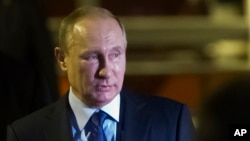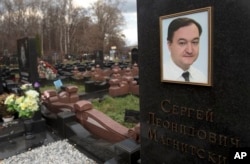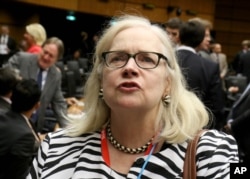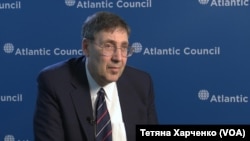Congress passed the "Sergei Magnitsky Rule of Law Accountability Act" in 2012 to punish Russian human rights abusers by banning them from entering the United States.
The Magnitsky Act is back in the headlines after it was reportedly on the agenda of a recently revealed meeting last June at Trump Tower in New York involving President Donald Trump's son Donald Trump Jr., along with the elder Trump's son-in-law Jared Kushner, former Trump campaign manager Paul Manafort, and Russian lawyer Natalia Veselnitskaya.
VOA diplomatic correspondent Cindy Saine spoke with former U.S. ambassadors and veteran diplomats Laura Kennedy and John Herbst, now of the Atlantic Council, to learn more about the law, which Russian President Vladimir Putin has long considered an irritant.
Q: Who was Sergei Magnitsky and what is the Magnitsky Act?
Kennedy: Sergei Magnitsky was the lawyer of American-born [British national] investor William Browder, whose business in Moscow had fallen out of favor with Russian officials. Magnitsky was working to expose alleged malfeasance on the part of those Russian officials, but was himself jailed and then died in prison in 2009 under decidedly odd circumstances. [Editor's note: He was reportedly denied medical care and beaten.] Many independent observers believe this was tantamount to murder and that the jail sentence was meted out by the Kremlin because Magnitsky was exposing corruption on the part of the Russian government.
Browder worked extensively to seek redress on this case and, in 2012, a bipartisan group of senators passed the Sergei Magnitsky Rule of Law Accountability Act, which identified specific Russian government officials involved in the case and imposed a visa ban on them. The act was not supported by the Obama administration which, as is often the case with the executive branch, preferred to deal with bilateral issues in its own way. After the president nevertheless signed the act, the [Russian parliament] Duma immediately voted to ban all Russian adoptions by U.S. citizens.
Q: How did the Kremlin react and why is Russian President Putin still irritated by the Magnitksy Act?
Kennedy: The Kremlin reacted viscerally. Putin instituted his own visa ban which targeted U.S. officials who had, in the Kremlin view, been involved with torture and escalated its own case against Browder. Undeterred, Browder continued to lobby other countries on the case. The U.S. Congress named an additional bill, which targeted human rights abusers around the world, in honor of Magnitsky.
The Magnitsky bills have remained a source of extreme resentment on the part of Putin and the Russian government, whose officials have been stigmatized not just by the charges of gross governmental corruption, but also by the specter of a murdered whistleblower.
Q. Can you explain what the Magnitsky Act has to do with U.S. citizens adopting Russian children?
Herbst: Well, when we passed the Magnitsky Act, Putin felt the need — as he usually does — to punch back when steps are taken which he doesn't like. But he couldn't pass Russia's own version of the Magnitsky Act because, by and large, the practices, these unethical practices, which are fairly common at senior levels in Russia, are not very common here. So he wanted to take a step that he thought would hurt Americans. And the step was he would deny them the possibility of adopting Russian children. Now this is sad for the American would-be parents. But it is much worse for the Russian children, who are stuck in these orphanages that are not the nicest places to grow up.
Q. Why is the Magnitsky Act back in the headlines now?
Kennedy: The apparently well-connected Russian lawyer, Natalia Veselnitskaya, was able to reach a new and highly promising avenue of potential influence when she arranged a meeting with Donald Trump Jr. during the [2016 presidential] campaign, allegedly to offer damaging information on candidate [Hillary] Clinton and the DNC [Democratic National Committee]. While Mr. Trump Jr. said recently that Veselnitskaya focused on adoptions, many commentators will note that the issue of adoption and the Magnitsky case are highly intertwined.
John Herbst served for 31 years as a foreign service officer with the U.S. Department of State, retiring at the rank of career-minister. He was U.S. ambassador to Ukraine from 2003 to 2006, when he worked to enhance U.S.-Ukrainian relations, help ensure the conduct of a fair Ukrainian presidential election and prevent violence during the Orange Revolution. Prior to that, he was ambassador to Uzbekistan (2000-03).
Laura E. Kennedy joined the U.S. Foreign Service in 1975. She served at U.S. embassies in Moscow (twice), Ankara, Yerevan (Chargé d'Affaires) and Ashgabat, and at U.S. missions to international organizations in Vienna (Deputy Permanent Representative) and Geneva. She was appointed by President George W. Bush as ambassador to Turkmenistan (2001-2003).














